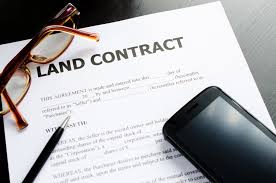Having a complete understanding of how to sell land by owner can be a pleasant experience and gives you complete control over the transaction and may increase your profits. However, it requires thorough planning, strong marketing, and familiarity with legal issues.
Selling land by the owner is doing it without the assistance of a real estate agent. This method allows you greater control and does away with the have to pay agent commissions, whether you own vacant land, a residential plot, or a commercial property. It also entails assuming more obligations, though. Let’s examine the fundamentals of selling land yourself, the benefits it provides, and any potential difficulties you might run into. We’ll walk you through every step of the procedure in this post so you may effectively sell your land on your own terms.
What is Selling Land By Owner?
By selling land yourself, sometimes referred to as “for sale by owner” or FSBO, you assume the responsibilities traditionally handled by a real estate agent. You’re in charge of duties including advertising the property, haggling with prospective purchasers, and managing the transaction process up until the sale is completed.
Why Sell Land By Owner?
Selling land by the owner has several advantages. Firstly, you may avoid paying real estate agent commissions, which can add up to a sizable sum of money. Second, it provides you all control over the sale process, including the ability to establish the price, develop marketing plans, and decide on the conditions of any negotiations. Additionally, selling land on your own can be gratifying, giving you a sense of accomplishment and deepening your knowledge of the real estate industry.
What Are the Pros and Cons of Selling Land by Owner?
Before diving into the process, it’s important to consider the pros and cons of selling land by the owner.
Pros:
- Save cost savings on commission given to real estate agents.
- Control over the entire selling process.
- Direct interaction with potential buyers.
- Ability to tailor marketing strategies to your land’s unique features.
Cons:
- Requires time and effort to handle all aspects of the sale.
- Limited access to marketing resources and networks available to real estate agents.
- Lack of expertise in negotiating and navigating complex legal processes.
Preparing to Sell
It’s critical to set yourself and your property up before selling your land for sale. This part goes through crucial procedures like market research, figuring out how much your land is worth, and compiling the required paperwork.
Researching The Market
Researching the market is a vital first step in selling land by the owner. Understanding the current trends, demand, and prices in your area will help you set a competitive price and attract potential buyers. Consider the following aspects when conducting market research:
- Analyze recent sales: Look for comparable properties that have been sold recently. Examine their sale prices, location, size, and any unique features.
- Study market trends: Identify whether the demand for land in your area is rising or declining. Pay attention to factors like zoning changes, infrastructure advancements, and population increase.
- Explore local regulations: Become familiar with any zoning limitations, building ordinances, or environmental laws that may have an impact on how your land may be used or developed in the future.
Determining the Value of Your Land
A successful sale depends on knowing the value of your land accurately. Here are the different techniques for calculating its value:
- Comparable sales approach: Evaluate your land against recently sold comparable properties in the neighborhood. In light of variations in size, location, and characteristics, adjust the sale pricing.
- Income approach: If your land produces revenue, such as through farming or leasing, you might estimate its worth based on the future revenue it might produce.
- Cost-based approach: Calculate the cost of purchasing a piece that is comparable to yours and make any necessary changes to determine the value of your land.
Preparing the Necessary Documents
To sell land by owner, you’ll need to gather and prepare various documents. These documents provide essential information to potential buyers and ensure a smooth transaction process. Here are the key documents you should have in order:
- Property deed: This document attests to your ownership of the property. Make that it is true, current, and unencumbered by any liens or encumbrances.
- Survey report: A recent survey report shows the property’s boundaries, easements, and any other relevant details. It helps potential buyers understand the land’s layout and boundaries.
- Title report: Obtain a title report from a reputable title company to verify that the title is clear and marketable. This report reveals any existing liens, easements, or other claims on the property.
- Environmental reports: If your land is in an area with potential environmental concerns, such as wetlands or contamination risks, consider obtaining environmental reports to provide to potential buyers.
- Any additional documentation: Depending on your location and the specific characteristics of your land, you may need additional documentation, such as soil reports, permits, or development plans.
Marketing Your Land
Marketing plays a crucial role in attracting potential buyers to your land listing. This section outlines effective strategies for creating an attractive listing, using high-quality visuals, and advertising on online platforms.
Creating An Attractive Listing
When listing your property it is important to highlight its special qualities and highlight its potential. To make your listing stand out, use the following advice:
- Write a compelling description: Use descriptive language to highlight the land’s best features, such as scenic views, proximity to amenities, or development potential. Include relevant details about access, utilities, and any existing structures.
- Highlight potential uses: Identify the possible uses of the land and describe them in the listing. For example, mention if the land is suitable for residential, commercial, agricultural, or recreational purposes.
- Emphasize location advantages: If your land is located near popular attractions, schools, or transportation hubs, emphasize these advantages to attract buyers.
- Include nearby attractions: Mention any nearby attractions, such as parks, lakes, or landmarks, that add value to the land.
Using High-quality Pictures And Videos
In order to attract potential customers’ attention, visual material is crucial. Follow these guidelines to create visually appealing photos and videos:
- Capture the land from multiple angles: Take photos or videos from different perspectives to showcase the land’s topography, vegetation, and surrounding views.
- Show any existing structures or improvements: If your land has existing structures, such as a barn or a well, include photos of them to give potential buyers a better understanding of the property.
- Use natural lighting: Capture photos during daylight hours to ensure optimal lighting conditions and showcase the land’s natural beauty.
- Consider aerial shots: If possible, use drone photography or satellite imagery to capture aerial views of the land. This can provide a unique perspective and highlight its features more effectively.
Advertising on Online Platforms
Online platforms offer a wide reach and are cost-effective for advertising your land. Consider the following platforms and strategies to maximize your exposure:
- Real estate websites: List your land on popular real estate websites that allow for land listings. Include all necessary information, pictures, and contacts.
- Social media: Make use of social media channels to connect with more people Create posts with eye-catching images and publish them on social media sites like LinkedIn, Facebook, and Instagram.
- Online classifieds: Explore online classified websites where you can post free or paid ads for your land. Be sure to optimize your ad with relevant keywords and a clear description.
- Local community websites: Check if your local community or neighborhood has websites or forums where you can post information about your land for sale. This can attract buyers who are specifically interested in the area.
Negotiating and Closing the Deal
Once potential buyers start to express themselves, it is time to bargain and complete the transaction. This section provides guidance on responding to inquiries and offers, conducting negotiations, and completing the transaction.
Responding to Inquiries And Offers
Promptly responding to inquiries and offers is crucial to maintaining potential buyers’ interest. Follow these tips when handling inquiries:
- Be available and responsive: Provide contact information, such as a phone number or email, that you regularly check. Respond to inquiries promptly to demonstrate your professionalism and willingness to engage.
- Answer questions thoroughly: Be prepared to answer questions about the land’s features, zoning restrictions, access to utilities, or any other relevant details. Provide accurate and transparent information.
- Consider scheduling property visits: If feasible, offer potential buyers the opportunity to visit the land in person. This allows them to assess the property firsthand and envision its potential.
Conducting Negotiations
Negotiating the sale price and terms is a critical aspect of selling land by the owner. Keep the following tips in mind when engaging in negotiations:
- Set your minimum acceptable price: Determine your lowest acceptable price before entering negotiations. This ensures you have a clear understanding of your bottom line.
- Stay open to offers: Even if an initial offer is below your desired price, consider making a counteroffer or engaging in constructive negotiations. Be flexible but assertive in presenting your terms.
- Seek professional advice if necessary: If you encounter complex negotiations or legal considerations, consider consulting a real estate attorney or professional mediator to ensure a fair and legally binding agreement.
Finalizing The Sale
It’s time to complete the deal when you and the buyer have come to an agreement. To guarantee a smooth transaction, take the following actions:
- Create a purchasing contract: Create a purchase agreement that contains all of the sale’s terms and conditions. Include information on the purchase price, the terms of payment, and any caveats.
- Review with a professional: Consider having a real estate attorney review the purchase agreement to ensure it complies with local laws and protects your interests.
- Coordinate with a title company: Work with a reputable title company to facilitate the closing process. They will conduct a title search, handle the transfer of funds, and issue the necessary documentation to complete the transaction.
- Sign and transfer documents: Sign the purchase agreement and other relevant documents as required. Coordinate with the buyer to transfer ownership through a deed transfer or other legal processes.
- Complete the transaction: Ensure all necessary payments are made, and the buyer receives the appropriate documentation, such as a deed or certificate of ownership.
Legal Considerations
Understanding the legal aspects of selling land by owner is essential to protect your interests and ensure a smooth transaction. This section covers key legal considerations and the importance of seeking professional advice.
Understanding Legal Requirements
Selling land involves legal obligations and requirements that vary by jurisdiction. Have a detailed understanding of the following legal aspects:
- Disclosures: Understand your responsibility to disclose any known issues or defects with the land. Failure to disclose could lead to legal repercussions later on.
- Property taxes and liens: Ensure all property taxes and liens are paid or properly addressed before the sale. Clear any outstanding debts or encumbrances to avoid complications.
- Local regulations: Research local regulations regarding land sales, zoning restrictions, and permits. Make sure you are following specific guidelines and instructions, if any.
Seeking Professional Advice
While selling land by owner empowers you to handle the process independently, it’s essential to know when to seek professional advice. Consider the following situations:
- Complex legal matters: If legal issues arise during negotiations or the transaction process, consult a real estate attorney for guidance.
- Contract review: Have a professional review any contracts, purchase agreements, or legal documents to ensure they protect your rights and interests.
- Tax implications: To learn about any potential tax repercussions, exemptions, or deductions connected to the sale of your land, consult a tax expert.
FAQs
Q1.What is the fastest way to sell the land?
Ans: The fastest way to sell land involves pricing it competitively, preparing necessary documents, working with a real estate agent, leveraging online listing platforms, and considering auctions or direct offers.
Q2. How do you sell private property?
Ans: Selling private property involves steps like assessing its value, preparing the property for sale, creating an appealing listing, marketing through various channels, negotiating offers, and completing the legal transfer process.
Q3.What are the 7 ways to sell?
Ans: There are multiple ways to sell, including through a real estate agent, online listings, auctions, for sale by owner (FSBO), direct sales to investors, lease options, and seller financing.
Q4. How do you sell for the first time?
Ans: Selling for the first time requires understanding the selling process, researching the market, setting a competitive price, preparing the property, creating effective marketing materials, and seeking guidance from real estate professionals if needed.
Q5: What are the advantages of selling land by owner?
Ans: Selling land by owner offers several advantages, including cost savings on agent commissions, full control over the selling process, and the opportunity to tailor marketing strategies to the land’s unique features.
Q6: Can I sell land without a real estate agent?
Ans: You can sell land without a real estate agent by adopting a for-sale-by-owner (FSBO) approach. It allows you to handle all aspects of the sale independently, potentially saving on agent commissions.
Q7: How can I determine the value of my land?
Ans: If your property generates money, you can use the income approach to estimate its worth. If not, you can use the cost approach to estimate its value by estimating the cost of purchasing a similar plot.
Q8: What documents do I need to sell land by owner?
Ans: To sell land by owner, you will need essential documents such as the property deed, survey report, title report, environmental reports (if applicable), and any additional documentation specific to your location and land characteristics.
Q9: Where can I advertise my land for sale?
Ans: You can advertise your land for sale on various platforms, including real estate websites, social media platforms, online classifieds, and local community websites. Maximize exposure by using compelling descriptions and high-quality visuals.
Q10: How should I handle negotiations with potential buyers?
Ans: When negotiating with potential buyers, set a minimum acceptable price, stay open to offers, and consider seeking professional advice if needed. Be flexible but assertive in presenting your terms.
Q11: What are the legal considerations when selling land by owner?
Ans: Legal considerations when selling land by owner include understanding disclosures, property taxes and liens, and local regulations. Seek expert guidance to verify that you are complying with all legal requirements.
Q12: Can I seek professional advice during the selling process?
Ans: Yes, you can seek professional advice during the selling process, especially in complex legal matters, contract reviews, and understanding tax implications. A real estate lawyer or tax expert can be consulted for helpful advice.
Q13: How do I finalize the sale of my land?
Ans: Create a purchase agreement, have it reviewed by a professional, if necessary, work with a title company, sign and transfer the required paperwork, and make sure all payments and transfers are finished to complete the sale of your land.
Q14: What should I do if I run into problems while selling?
Ans: Getting expert assistance from a real estate attorney or mediator is recommended to settle the issues if you run across problems throughout the selling process, such as legal challenges or difficult negotiations.
Conclusion
Selling land by owner can be a rewarding experience that allows you to maximize your control and potentially save on real estate agent commissions. You can navigate the process successfully by following the steps outlined in this guide, from market research and marketing strategies to negotiations and legal considerations. Remember to seek professional advice when necessary and ensure compliance with local regulations. Selling land by owner requires effort and attention to detail, but with the right approach, you can achieve a successful sale.
If you’re interested in learning more about personal finance and managing wealth,
check out our website at https://themoneybeez.com/personal-finance/
You may also like….



